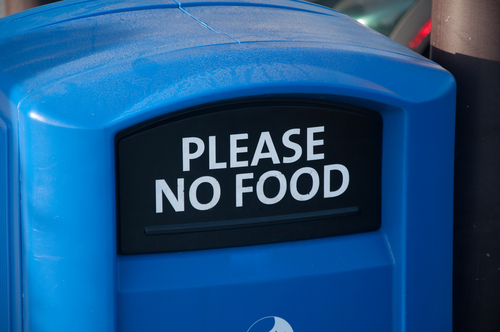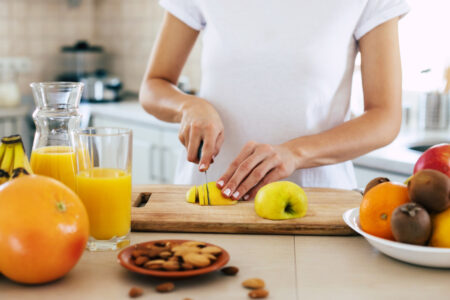Waste not, want not

As Jamie Oliver’s war on sugar continues, Hugh Fearnley-Whittingstall has become the next UK celebrity chef to challenge the food industry.
His BBC documentary this week, Hugh’s War on Waste, looked at the major supermarkets’ role in food waste. Despite their websites claiming to advocate ‘zero waste’ and committing to be ‘world leaders in eradicating waste’, as well as promises that they do everything possible to avoid wasting any food still fit for human consumption, Fearnley-Whittingstall found that the supermarkets aren’t practising what they preach.
Joining a couple on one of their late night ‘skip diving’ missions – rooting around in the bins behind a supermarket to uncover produce thrown out by the supermarket at the end of the day – Fearnley-Whittingstall found beer, bottled water, Ferrero Rocher, oranges, bananas and salad items all in their original packaging and, in some cases, not even out of date.
He also explored the waste which occurs before the food even reaches shelves, with around 20 per cent of crops grown in Britain never being eaten as supermarkets deem them too ‘ugly’. Consumers won’t buy produce unless it’s perfect looking, the supermarkets argue, so they apply cosmetic standards to their produce.
Fearnley-Whittingstall visited a farm, which, despite investing in expensive machinery to slice, dice and grate the less ‘perfect’ looking carrots to produce other ranges such as bags of chilled, prepared veg, still loses 3,000 tonnes of perfectly edible carrots every year to cosmetic standards.
If farmers weren’t forced to throw so much away, they could grow less using fewer resources and be able to charge consumers less for produce, Fearnley-Whittingstall argued.
The documentary also touched on AD, which, Fearnley-Whittingstall believes, is the right thing to do with wasted food that really cannot be eaten. However, a quick trip to one AD plant found that some of it was just surplus stock. It is “madness to feed power stations with food that could still be used to feed people,” he said. “Food that can be eaten by human beings should be eaten by human beings.”
It seems Fearnley-Whittingstall’s plea to supermarkets to waste less struck a chord. At the end of the documentary, he revealed that Asda, Tesco, Co-op and Sainsbury’s have all committed to send more food to FareShare, a food supply organisation for the vulnerable and needy. In addition, Morrisons has announced that it will send all surplus food for redistribution to charities.
Fearnley-Whittingstall’s next move is to encourage them to relax their cosmetic standards. However, this also requires consumers to step up and say they wouldn’t be averse to buying unsightly produce.
Who needs perfect looking carrots anyway? I’ve always been taught that beauty comes from within, and not only is the uglier produce still produced in the same way as the beautiful stuff, but it tastes exactly the same too!




Great work Hugh!Course odd shaped fruit and veg.are acceptable to this consumer and all sensible people.Who would not want cheaper food and stop waste from hard working farmers?.Supermarkets have too.much purchasing power,good that this is brough to light,as with dairy farmers and milk being cheaper than water!
Stop this nonsense and good luck with the battle.